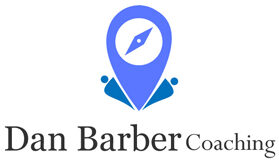Last week I addressed a question that I was asked in response to my current series of posts titled, “Live Your Best Life Now.” The question suggested that pursuing our best life now, was a selfish pursuit. You can read more about it here.
Today, I’d like to raise another (legitimate) concern. In another conversation I had recently, someone asked if “all this talk about pursuing our dreams and setting long -range goals…” was an indication of discontentment. “Shouldn’t we just be content with who we are?” They quoted from the Bible to support their assumption, “Godliness with contentment is great gain.” (1 Timothy 6:6)
I think this is a great question and one to be considered carefully. Paul, wrote those words and also, “I have learned to be content whatever the circumstances…whether well-fed or hungry, whether living in want or in plenty.” (Phil 4:11)
Perhaps at first glance it does appear that pursuit of our best life now is at odds with the command to be content.
Contentment seems to be a mindset about our current circumstances, especially as it relates to what we have, or don’t have. Whether you and I have much or little, our contentment is not dictated by that.
Content or Comfortable
What if contentment is an excuse for comfort (dare I say laziness). In the Bible, contentment appears to be an attitude rather than an achievement. It also is closely connected with money or lack of it. Contentment cannot be achieved with more money. The love and pursuit of money, is a result of a lack of contentment.
“He who is not contented with what he has, would not be contented with what he would like to have.” – Socrates
But does contentment in our current circumstances preclude us from pursuing goals, following our dreams and passions, or wanting to grow and change?
Divine Discontent
Ralph Waldo Emerson talked about the concept— “divine discontent.”
“I see young men, my townsmen, whose misfortune it is to have inherited farms, houses, barns, cattle, and farming tools; for these are more easily acquired than got rid of. Better if they had been born in the open pasture and suckled by a wolf, that they might have seen with clearer eyes what field they were called to labor in.”
“It is my belief that authentic vocational success is tied to our spiritual well-being—the identification of those inner gifts and talents that need to be used for us to feel fulfilled. Now I don’t want this to be so “spiritual” that we can’t find real application, but work has to provide more than just an income.” – Dan Miller
It’s Not About Getting More, It’s About Being More
What are your dreams and passions? What do you want? “Delight yourself in the Lord and He will give you the desires of your heart. ” (Psalm 37:4)
What are the skills and abilities you have been blessed with. “You are fearfully and wonderfully made.” (Psalm 139:14)
Pat Flynn says we all have an “unfair advantage” based on our personal experiences, our story and our abilities. What comes naturally to you that doesn’t for others? We tend to minimize the things that come easy or natural to us. We see them as unimportant or simply things that anyone can do.
Do you know your calling? (not your career or job) “We are God’s masterpiece. He has created us in Christ Jesus, so we can do the good things he planned for us long ago.” (Ephesians 2:10)
“God has given each of you a gift from his great variety of spiritual gifts. Use them well to serve one another.” 1 Peter 4:10)
The Lazy Servant
Jesus tells a story about three servants who were entrusted with a certain amount of money unique to each of them. The first 2 put it to work, but the third did nothing with it and was chastised for it. (Matt 25:14-23) Why? Because he was given something with which he did nothing! Was he content to simply hide the money until his boss came back? Or was he too lazy to put it to work?
What have you been given? Time, gifts, abilities, health, relationships, work and our resources. How are you using what you have?
Maybe contentment is being satisfied with what we have (verses comparing what we have to what others have) but not an excuse for not pursuing what we can become.
The issue isn’t what we have or how much we have, but what we do with what we have.
So what do you think? Are you content? Can we experience contentment and discontent at the same time?
Does contentment mean we shouldn’t pursue our best life now? Why or why not?
I’d love to hear your thoughts…leave me a message below.
If you have questions or would like to explore life coaching but you’re not sure where to begin, contact me to arrange an initial free 30 minute Discovery Call. Let’s talk.


Be First to Comment